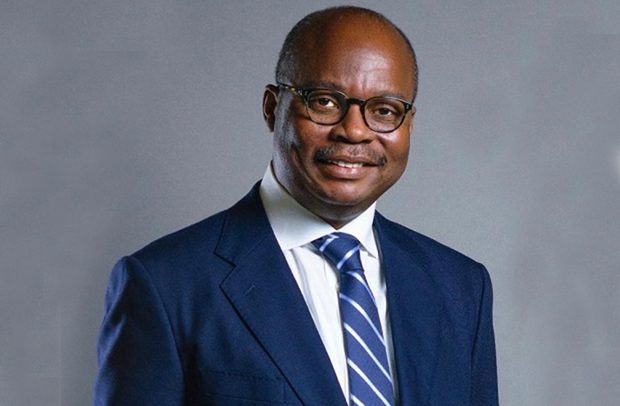Dr. Ernest Addison
GOVERNOR OF the Bank of Ghana, Dr. Ernest Addison, has indicated that government’s proposed debt exchange programme will greatly help to restore economic confidence in the economy.
Speaking at the Annual Bankers Dinner in Accra, he said it would, among others, help to improve the monetary policy to control inflation as well as strengthen the banking sector.
According to him, that has become necessary due to the economic challenges confronting the country, which are also taking a toll on many banks.
He said, “To guarantee debt sustainability over the medium term, a debt exchange operation is proposed to be undertaken to support the consolidation agenda. I think that the information provided should give us a broad level of confidence that the fiscal measures, as well as the debt operations, will help us foster confidence, improve our debt metrics and complement what we have been doing in the monetary policy to bring down pressures in the pricing levels.”
Chartered Institute Of Bankers
Benjamin Amenumey, president of the Chartered Institute of Bankers (CIB), who expressed worry over the high cost of doing business, indicated that efforts were being made to address such challenges facing the banks.
He stated that CIB, as part of its 60th anniversary, would launch a book to commemorate the existence of the institute for the past years.
Finance Minister’s Announcement
Yesterday, Finance Minister Ken Ofori-Atta announced the new measures at a press conference in Accra.
These include external debt restructuring efforts to minimise the impact of the domestic debt exchange on investors holding government bonds, vulnerable groups among others.
He stated, “As I announced in the evening of yesterday, Sunday, December 4, 2022, we are gathered here today to invite holders of domestic debt to voluntarily exchange approximately GH¢137 billion of the domestic notes and bonds of the Republic, including E.S.L.A. and Daakye bonds, for a package of New Bonds to be issued by the Republic. The Debt Sustainability Analysis (DSA) demonstrated unequivocally that Ghana’s public debt is unsustainable, and that the Government may not be able to fully service its debt down the road, if no action is taken.
“Indeed, debt servicing is now absorbing more than half of total government revenues and almost 70% of tax revenues, while our total public debt stock, including that of State-Owned Enterprises and all, exceeds 100% of our GDP.
“This is why we are today announcing the debt exchange which will help in restoring our capacity to service debt. This is the path towards resetting the economy to a more stable one capable of addressing the development challenges of the country.”
The Finance Minister, giving reasons for the new measures, said the COVID-19 pandemic, rising global food prices, rising crude oil and energy prices; as well as the Russia-Ukraine war adversely affected Ghana’s macroeconomy, with spillovers to the financial sector, adding that the combination of adverse external shocks have exposed Ghana to a surge in inflation, a large exchange rate depreciation and stress on the financing of the budget, which, taken together, “have put our public debt on an unsustainable path.”
He said it is to address the ongoing economic crisis, that the government has requested financial support from the International Monetary Fund (IMF).
“We expect to reach a Staff-Level Agreement soon on an IMF programme aimed at restoring macroeconomic stability and protecting the most vulnerable. To this end, as a Government, we are determined to implement wide-ranging structural and fiscal reforms to restore fiscal and debt sustainability and support growth.
“Consistent with all of the above, I announced during the Budget Statement presented to Parliament on November 24, that Government will undertake a debt operation programme. We presented to you the contours of the Domestic Debt Exchange programme yesterday. As you are aware, we established a consultative committee to work with the financial sector and incorporated their advice in our decisions,” he disclosed.
Domestic Gold Buying
He also said the decision to introduce the domestic gold buying policy was due to the pressures on the local currency and some losses in the reserves in the banking sector.
BY Ebenezer K. Amponsah


